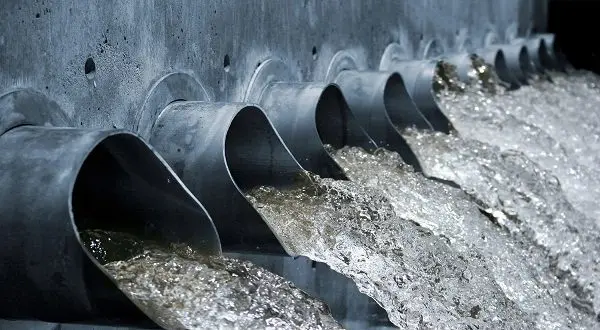
The Arkansas Department of Corrections has made little discernible progress in fixing an aging wastewater plant that regularly violates its federal water permit, public records show.
The department missed a 2024 deadline for completing repairs to the Cummins-Varner Wastewater Treatment Plant and returning the facility to compliance with its wastewater permit. Despite an extension of the deadline to 2027, the corrections department has yet to move beyond the early planning stages on an expansion of the plant’s capacity.
The wastewater plant serves two of the state’s largest prisons and has been under a consent administrative order from the state’s environmental agency since 2022. Consent administrative orders (CAOs) are legally binding, voluntary agreements between the Arkansas Division of Environmental Quality and those who have violated or are believed to have violated state or federal environmental regulations. The orders outline steps to return to compliance and monetary penalties, and violators do not have to admit fault by signing one.
While DEQ technically levied an $8,400 penalty against DOC for the violations in 2021, the corrections department will only have to pay it if DEQ determines it isn’t in compliance with the consent order.
The plant treats waste from the Cummins and Varner Units in Lincoln County and is at least 50 years old, according to a report filed with DEQ in 2021. It hasn’t had any significant upgrades since 2001, the corrections department said last year.
The plant is designed to treat 800,000 gallons of wastewater per day, but public records show that for over a decade it’s been exceeding that amount. In 2021, amid 12 months of pollution violations, an analysis by DOC contractor McClellan Engineering Consultants concluded the plant had “significantly exceeded” its treatment capacity, with an average of 1.2 million gallons of waste passing through the plant every day.
The excess flow contributed to the plant discharging wastewater that hadn’t been fully treated and exceeded permit limits.
Despite the 2024 compliance deadline, the corrections department spent years deciding whether to build a new, larger plant or expand the existing one. It asked the Division of Environmental Quality for a deadline extension, citing a search for funding, even as it hadn’t settled on a course of action.
It’s unclear if the delay has harmed the environment.
“Permit limits are developed to be protective of aquatic life, water quality, and human health,” DEQ spokesperson Melony Martinez said in an email. “Violations of the permitted limits over a period of time may contribute to an impairment of the receiving waterbody or downstream waterbody.”
The Advocate’s analysis of the plant’s permit violations is based on a review of public records and discharge data reported to the Division of Environmental Quality.
Despite multiple requests, a Department of Corrections spokesperson did not provide answers to questions about the agency’s plans to address the permit violations at the plant or when the fixes would be funded. Instead, the spokesperson provided a written statement from Corrections Secretary Lindsay Wallace.
contingencies have required re-evaluation from different administrations, Corrections Secretaries and Maintenance Directors to ensure the scope of the project and the solutions are adequate for the changing needs of the units.”
The Cummins and Varner Units hold just over 4,000 incarcerated people.
To view this story, or for more news updates from Arkansas Advocate, click here.
WebReadyTM Powered by WireReady® NSI










